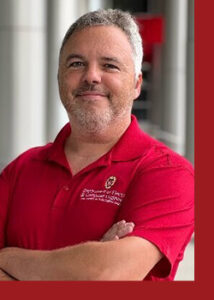Program Overview
Are you a recent graduate ready to continue your education in pursuit of long-term goals, like a career in electric power, power electronics, motor drives or electric machines? Or are you an experienced professional seeking to advance your engineering career by specializing in an innovative area?
Whatever your motivation, the Master of Science in Electrical and Computer Engineering: Power Engineering program provides graduate students with immediately applicable knowledge in power electronics (including alternative energy) through research and the study of technological and conceptual innovations in electrical and computer engineering.
The faculty at UW–Wisconsin and the Wisconsin Electric Machines and Power Electronics Consortium (WEMPEC) have collaborated to develop a comprehensive curriculum consisting of 30 credits. This program is designed to provide an extensive knowledge of electrical machines and power electronics.
You will earn a highly coveted master’s degree that’ll enhance your resume and distinguish you from the competition.
This is an accordion element with a series of buttons that open and close related content panels.
What You’ll Learn: A Curriculum Curated for Next-Generation Engineers
Strengthen your current skill set and advance your career in the expanding field of power electronics and electric machines. Our online program consists of 30 credits, with many students completing the program in three to four years while working full time.
We offer a robust curriculum of course options that will place you at the forefront of power engineering:
- Introduction to Electric Drive Systems
- Power Electronic Circuits
- Automatic Controls
- Computer Control of Machines and Processes
- Electric Machine & Drive System Laboratory
- Matrix Methods in Machine Learning
- Dynamics and Control of AC Drives
- Solid State Power Conversion
- Kinematics, Dynamics, and Control of Robotic Manipulators
- Utility Application of Power Electronics
- Electromagnetic Design of AC Machines
- Dynamics of Controlled Systems
- Advanced Computer Control of Machines and Processes
- High Performance Computing for Applications in Engineering
Why Choose UW–Madison
We know that engineering is a competitive field. That’s why we strive to offer our students every advantage possible, helping them succeed professionally and academically while working toward a brighter, more exciting future and better world. Here are some of the benefits you can expect as a bonafide UW–Madison Badger:
- Online learning provides flexibility to decide when and where you complete your coursework.
- Our distinguished and internationally renowned faculty hail from the Department of Electrical & Computer Engineering and the Wisconsin Electric Machines and Power Electronics Consortium (WEMPEC).
- Start dates are available in the spring and fall, so you can start whenever the time is right for you.
Advanced Career Opportunities
Our power engineering program allows you to diversify your career options, so you can align your career with your skills and interests. Potential job opportunities include:
- Engineering group manager
- Senior electrical engineer
- Power systems engineer
Where Our Alumni Work
With a graduate degree from UW-Madison, you will open the door to new and exciting career opportunities from a wide variety of employers, not limited to:
- General Motors
- Ford Motor Company
- Kohler Company
- Trane Technologies
- Lockheed Martin
- GE Aviation
Webinar
Join Graduate Advisor Justin Kyle Bush to learn about the Capstone Certificate in Power Conversion and Control and the online Master of Science program in Power Engineering, what you can expect to learn in the programs and their applications in industry.
Courses
Of the 30 credits required, a minimum of 21 credits must be ECE courses numbered 400 and above. Of those 21 credits, at least 15 must come from the Power Engineering course options below, including at least 3 credits from courses numbered 500-599 and 6 credits from courses numbered 700+.
Course Path:
A maximum of 3 credits in ECE 699 Advanced Independent Study and 3 credits in ECE 999 Advanced Independent Study are allowed. ECE 790 Master’s Research or similar research courses may not be used to satisfy the 30-credit requirement.
Thesis or Project Path:
Students must identify a faculty research advisor and complete a thesis or project paper under their direction. A minimum of 3 credits must be in ECE 790 Master’s Research, and no more than 9 credits from any combination of ECE 699 Advanced Independent Study, ECE 790 Master’s Research or ECE 999 Advanced Independent Study may apply. A minimum of 15 credits of courses numbered 700+ are required.
Choose at least 15 credits from the following courses, including at least 3 credits from courses numbered 500-599 and 6 credits from courses numbered 700+.
| Course Code | Course Title | Credits |
| ECE 411 | Introduction to Electric Drive Systems¹ |
3 |
| ECE 412 | Power Electronic Circuits ¹ | 3 |
| ECE 427 | Electric Power Systems | 3 |
| ME 446 | Automatic Controls ¹ | 3 |
| ME 447 | Computer Control of Machines and Processes |
3 |
| ECE 504 | Electric Machine & Drive System Laboratory | 3 |
| ECE 511 | Theory and Control of Synchronous Machines |
3 |
| ECE 512 | Power Electronics Laboratory | 3 |
| ECE/COMP SCI/ ME 532 |
Matrix Methods in Machine Learning | 3 |
| ECE 711 | Dynamics and Control of AC Drives ¹ | 3 |
| ECE 712 | Solid State Power Conversion ¹ | 3 |
| ECE 713 | Electromagnetic Design of AC Machines | 3 |
| ECE 714 | Utility Application of Power Electronics | 3 |
| ECE/ME 441 | Kinematics, Dynamics and Control of Robotic Manipulators |
3 |
| ME 732 | Dynamics of Controlled Systems | 3 |
| ME 733 | Advanced Computer Control of Machines and Processes | 3 |
| ECE/COMP SCI/ EMA/EP/ME 759 |
High Performance Computing for Applications in Engineering |
3 |
| ECE 901 | Special Topics in Electrical and Computer Engineering |
1-3 |
¹ These courses may be completed via the Capstone Certificate in Power Conversion and Control.
This is an accordion element with a series of buttons that open and close related content panels.
Research and Independent Study Courses
Course path students may complete a maximum of 3 credits each of ECE 699 and ECE 999. They may not take ECE 790.
Thesis/Project path students must take a minimum of 3 credits of ECE 790 and no more than 9 credits from any combination of ECE 699, ECE 790, or ECE 999.
| Course Code | Course Title | Credits |
| ECE 699 | Advanced Independent Study | 1-6 |
| ECE 790 | Master’s Research | 3-9 |
| ECE 999 | Advanced Independent Study | 1-6 |
Admissions and Tuition
This is an accordion element with a series of buttons that open and close related content panels.
Admission Requirements
- A Bachelor of Science (BS) from a program accredited by the Accreditation Board for Engineering and Technology (ABET) or the equivalent. *
- An upper-division GPA of 3.00 or a master’s degree with a cumulative GPA of 3.00.
- Registration as a professional engineer by examination, if achieved, should be documented to support your application.
The GRE is not required. However, you may submit your results if you feel it will improve your chances of qualifying for the program.
*Equivalency to an ABET-accredited program: Applicants who do not hold a bachelor’s degree from an ABET-accredited program may also qualify for admission to the program. Such applicants must have:
- A BS in science, technology or a related field with sufficient coursework and professional experience to demonstrate proficiency in engineering practice
OR
- at least 16 credits of math and science coursework. (Registration as a professional engineer by examination, if achieved, should be documented to support your application.)
All applicants are advised to determine whether this program meets the requirements for licensure in the state where they live. See the National Society of Professional Engineers website for contact information for state licensing boards
International Admissions Requirements
- A degree comparable to an approved U.S. bachelor’s degree.
- Academic performance comparable to a 3.00 for an undergraduate or master’s degree.
- Applicants whose native language is not English must provide scores from the Test of English as a Foreign Language (TOEFL). The minimum acceptable score on the TOEFL is 580 on the written version, 243 on the computer version or 92 on the Internet version.
Fill out the application to start the next chapter of your engineering career.
Tuition
Tuition
UW–Madison’s tuition costs for the power engineering master’s degree program are as follows:
- Per credit
Tuition is $1,600 per credit hour, payable at the beginning of each semester.
- Total tuition
The total tuition for this program is $48,000.*
*This total does not include textbooks or course-specific software. Software required for courses is typically available by UW–Madison or in educational versions at substantial discounts.
Faculty and Staff
This is an accordion element with a series of buttons that open and close related content panels.
Graduate Advisor: Libby Miller, MEd

Contact: studentservices@interpro.wisc.edu
Libby is the graduate academic advisor for the following online graduate engineering programs:
- Manufacturing Systems Engineering (MSE)
- Engineering Data Analytics (MEDA)
- Electrical and Computer Engineering: Power Engineering
- Power Conversion and Control Capstone Certificate (PCC)
Prior to her role at UW-Madison, Libby served as a Graduate Advisor for the Electrical & Computer Engineering Department at UC Santa Cruz and as Admissions Coordinator for the College of Sciences & Mathematics at Belmont University. Before that, Libby was an Enrollment Adviser for the University of Wisconsin Extended Campus online degree programs. Throughout her career in education, she has facilitated graduate student advising, provided departmental leadership and administrative support and coordinated a variety of large events that support student success. Libby understands the challenges and requirements of success in graduate education and hopes to assist students in achieving this significant accomplishment.
Steve Fredette, PhD

Contact: fredette@wisc.edu
Dr. Fredette is an associate teaching professor in the Department of Electrical & Computer Engineering at UW–Madison. He is interested in the design, simulation, modeling, controls and development of power conversion systems for alternative energy (e.g., wind, solar PV, fuel cells) as well as industrial (e.g., HVAC, elevator, traction) applications. Dr. Fredette has delivered innovative, producible solutions to the industrial, aerospace and alternative energy fields.He has acquired a wide range of industrial experience through work for United Technologies, Vestas Technology R&D and American Superconductor (AMSC). He has a PhD from UW–Madison.
Giri Venkataramanan, PhD

Contact: giri@engr.wisc.edu
Dr. Venkataramanan is a professor in electrical and computer engineering at UW–Madison. He specializes in various areas, including the application of power electronics in building lighting, climate conditioning, industrial motor control, electric generation, transmission and distribution and transportation systems. His expertise extends to renewable power generation systems, as well as the operation and control of microgrids and smart grids in distributed generation, energy storage, combined heat and power and electric, hybrid electric and plug-in hybrid electric vehicles.Dr. Venkataramanan received the Benjamin Smith Reynolds Award for Excellence in Teaching in 2008.
He received a bachelor’s degree from the Government College of Technology in Coimbatore, India, and received his PhD from the University of Wisconsin–Madison.
Michael R. Zinn, PhD

Contact: mzinn@wisc.edu
Dr. Zinn is an associate professor in the Department of Mechanical Engineering at the University of Wisconsin–Madison. His research interests are broadly directed at understanding and overcoming the design and control challenges of complex electro-mechanical systems with a primary focus on human-centered robotics.Dr. Zinn teaches Advanced Robotics, Dynamic Systems and Control Systems, among other courses. He also directs graduate student research and advanced independent study.
Prior to joining UW–Madison, he was director of systems and controls engineering at Hansen Medical where he helped to develop the world’s first commercially available, minimally invasive flexible surgical robotic system.
He has more than 10 years of electro-mechanical system design and manufacturing experience in aerospace and high-technology industries. Dr. Zinn received his BS and MS from MIT and a PhD in mechanical engineering from Stanford University.
